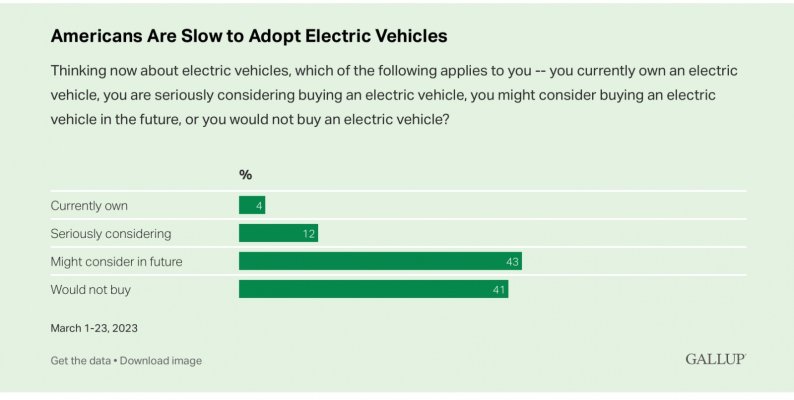Chuckanut
Give me a museum and I'll fill it. (Picasso) Give me a forum ...
No one is saying everyone should have any particular vehicle.
Today, the above is mostly true. But, there are future mandates that will force people to buy EVs.
My state is mandating no new ICE vehicles can be sold by 2030. Other state's are mandating 2035.
https://www.utilitydive.com/news/wa...te-100-electric-new-car-sales-by-2030/620303/
Washington lawmakers last week passed legislation adopting a target for the state to end the sales of new gasoline-powered cars by 2030, a deadline that is five years ahead of neighboring California, making it the most ambitious goal in the country.
Last edited:

